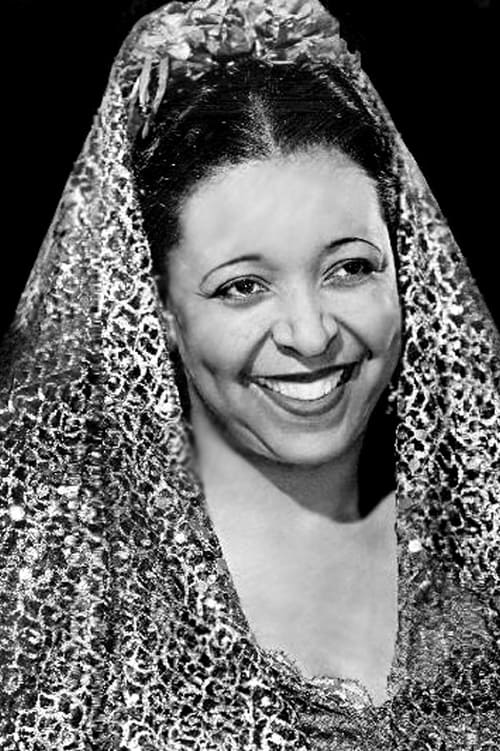Ethel Waters
Nacimiento : 1896-10-31, Chester, Pennsylvania, U.S.
Muerte : 1977-09-01
Historia
Ethel Waters (October 31, 1896 – September 1, 1977) was an American blues, jazz and gospel vocalist and actress. She frequently performed jazz, big band, and pop music, on the Broadway stage and in concerts, although she began her career in the 1920s singing blues.
Her best-known recordings includes, "Dinah", "Birmingham Bertha", "Stormy Weather" "Hottentot Potentate", and "Cabin in the Sky", as well as her version of the spiritual, "His Eye Is on the Sparrow". Waters was the second African American to be nominated for an Academy Award.
Description above from the Wikipedia article Ethel Waters, licensed under CC-BY-SA, full list of contributors on Wikipedia.

Herself (archive material)
Broadway: The Golden Age is the most important, ambitious and comprehensive film ever made about America's most celebrated indigenous art form. Award-winning filmmaker Rick McKay filmed over 100 of the greatest stars ever to work on Broadway or in Hollywood. He soon learned that great films can be restored, fine literature can be kept in print - but historic Broadway performances of the past are the most endangered. They leave only memories that, while more vivid, are more difficult to preserve. In their own words — and not a moment too soon — Broadway: The Golden Age tells the stories of our theatrical legends, how they came to New York, and how they created this legendary century in American theatre. This is the largest cast of legends ever in one film.

Self (archive footage)
In 1966, CBC Television invited some of North America's greatest blues performers to gather in a studio in Toronto, recording together and individually in sessions that lasted three days. The result was originally televised as part of the CBC "Festival" series, and now the session video tapes have been found, restored and re-edited. The great Muddy Waters and his band perform "You Can't Lose What You Never Had" and "Got My Mojo Workin'," the latter with James Cotton on harmonica. Willie Dixon goes solo on "Bassology" and (helped by a little '90s technology) performs "Crazy for My Baby" with host Colin James. Plus rare appearances by Sonny Terry and Brownie McGhee, Mable Hillery singing "How Long This Train Been Gone," and delta blues piano player Sunnyland Slim, introducing a whole new generation to this inspiring, soulful music.

Self (archive footage)
Wild Women Don't Have the Blues shows how the blues were born out of the economic and social transformation of African American life early in this century. It recaptures the lives and times of Ma Rainey, Bessie Smith, Ida Cox, Alberta Hunter, Ethel Waters and the other legendary women who made the blues a vital part of American culture. The film brings together for the first time dozens of rare, classic renditions of the early blues.

(archive footage)
Segunda parte de "Érase una vez en Hollywood". A diferencia del primer documental, sólo hay dos narradores: Gene Kelly y Fred Astaire. Incluye escenas de comedias y dramas en los que intervienen los hermanos Marx, Laurel y Hardy o Katharine Hepburn.
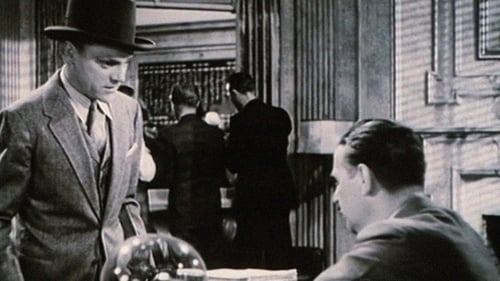
Self (archive footage)
Period music, film clips and newsreel footage combined into a visual exploration of the American entertainment industry during the Great Depression.

Self (archive footage)
Ossie Davis narrates a history of "race films," films made before 1950 which catered to a primarily black audience.

Self (archive footage)
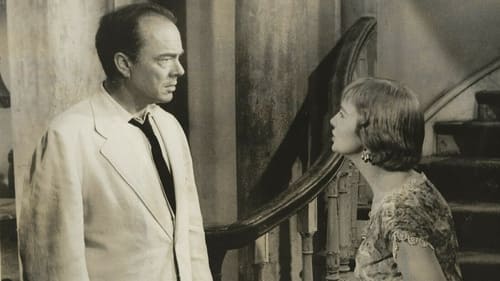
Dilsey
Basada en la novela homónima de William Faulkner, narra las vidas y las pasiones de los Compsons, una rígida e ilustre familia del Sur de los Estados Unidos que vive una grave crisis financiera y emocional. Howard (John Beal) se pasa el tiempo bebiendo, su hermano Bengy (Jack Warden) es un niño en el cuerpo de un hombre, Jason (Yul Brynner) es el más sereno de la familia. Y Quentin (Joanne Woodward), que es la narradora, es la única que tiene el coraje necesario para evitar la desintegración de su familia.
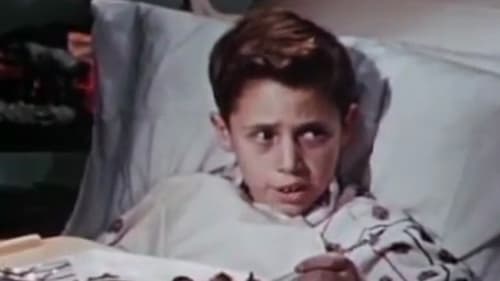
Gladys
While struggling with their son’s serious illness, a young couple experiences conflict when her husband does not understand the wife’s acceptance of Christ. THE HEART IS A REBEL features the beloved Ethel Waters, and is set against Billy Graham’s historic 1957 New York City Crusade, with color scenes of the Crusade at Madison Square Garden.
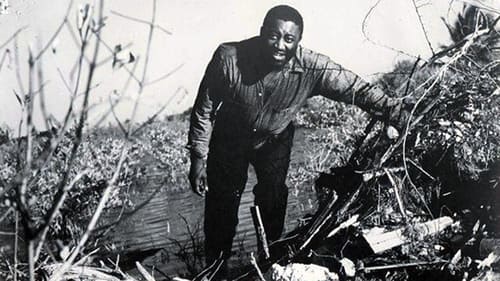
Mom
The hard-working but struggling crew of a shrimp boat discover a sunken treasure. Trouble ensues in this dramatic black-cast production.
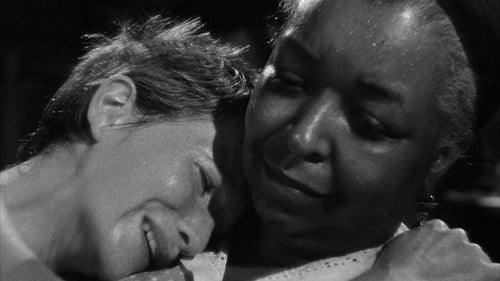
Berenice Sadie Brown
La boda del joven Jarvis hace que Frankie, su hermana pequeña, experimente una sensación de abandono casi insoportable. Afortunadamente, la niña cuenta con el cariño de Berenice, el ama de llaves negra, que hará todo lo posible por consolarla y enseñarle a afrontar la vida con madurez. (FILMAFFINITY)
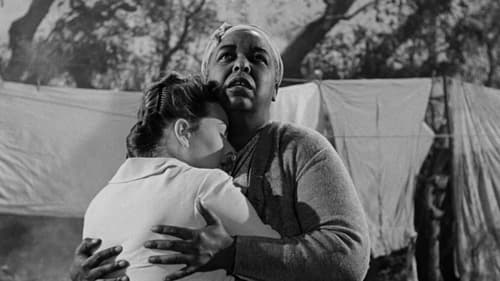
Dicey Johnson
Una mujer negra de piel clara se hace pasar por blanca, pero no le será tan fácil ocultar su verdadera raza cuando regresa a su hogar natal en Mississippi, una ciudad llena de fanatismo, prejuicios y racismo.

From the great era of musical shorts come three gems that feature legendary African-American performers including Ethel Waters, Eddy Green and the incomparable Dusty Fletcher. The three featured shorts are: Mr. Atom's Bomb, Bubbling Over and Open the Door Richard. These musical classics must be seen!
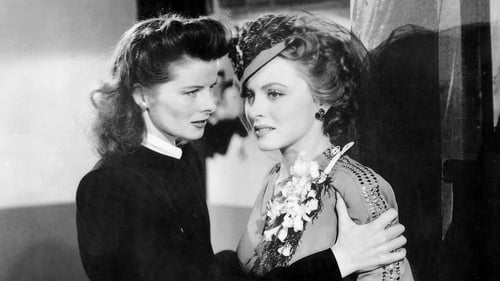
Ethel Waters
Segunda Guerra Mundial (1939-1945). Dakota (Terry), un soldado que está de permiso en Nueva York, visita la famosa Stage Door Canteen (título original del film), un local de Broadway donde célebres artistas entretenían a los soldados que volvían del frente. Dakota y sus amigos, Tex (Sunset Carson) y California (Lon McAllister), caen rendidos ante los encantos de Eileen (Cheryl Walker), Jean (Marjorie Riordan) y Ella Sue (Margaret Early). Artistas del calibre de Katharine Hepburn, Merle Oberon, George Raft, Johnny Weismuller, Ralph Bellamy o Harpo Marx llenan el local, en el que actúan las bandas de Xavier Cugat, Count Basie y Benny Goodman.
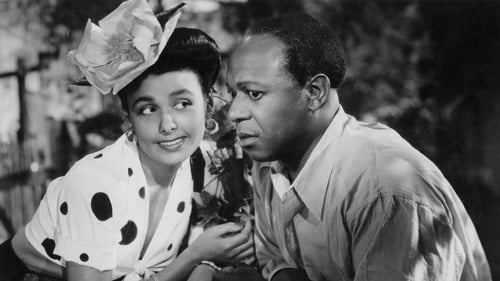
Petunia Jackson
Joe es un jugador profesional que se debate entre dos amores. En el suburbio en el que reside vive una bella mujer por la que se siente tentado. Mientras, su mujer sufre en silencio una existencia llena de desengaños.

Herself (segment 'On with the Show!') (archive footage)
This short traces the history of sound in the movies, beginning with French scientist Leon Scott's experiments in 1857. Featured are snippets from early sound pictures.
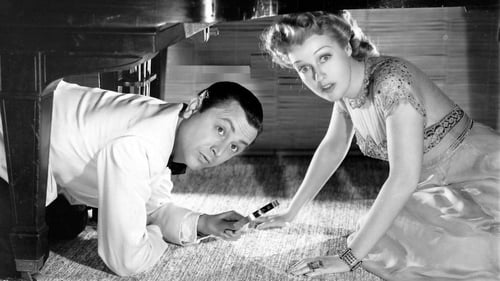
Cleona Jones, Marcia's Maid
El reportero Homer Smith accidentalmente implica a Marcia Warren en su misión para evitar que los nazis bombardeen convoyes aliados con aviones-robot.
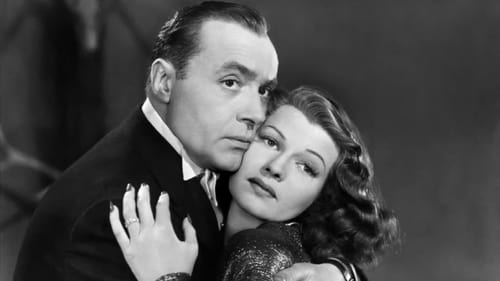
Esther
Película ambientada en Nueva York y dividida en varios episodios independientes, pero enlazados entre sí por un traje de hombre que va pasando de unas manos a otras. Cada personaje vive una aventura especial relacionada con el traje.

Aimed at African Americans and shot at Tuskegee University, this film instructs viewers in the prevention and treatment of tuberculosis by focusing on a pair of sympathetic siblings, George and Mary, whose lives are altered by the disease. Starring Rex Ingram as Dr. Gordon, the film suggests that organized religion is an important defensive location in this particular community, and warns of the dangers of the previous generation’s superstitions and its fear of medicine. The Health Department prominently featured the film at the 1939 World’s Fair. Directed by Edgar Ulmer.
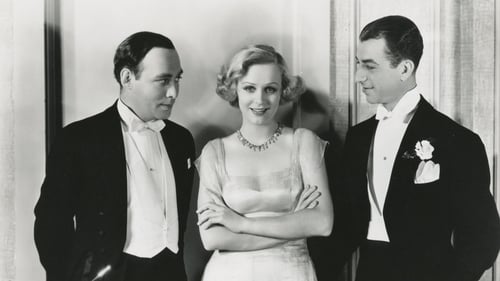
Herself
Conceited radio announcer irritates everyone else at the station.

Ethel Peabody
In this all-black short musical comedy, a woman has a husband so lazy she can stick a pin in him without him waking up... but announcing lunch gets him up pretty fast. She's also saddled with a bevy of his lazy relatives. Four more come by and sing as a quartet. After the wife learns they had been traveling men, she advises them to keep traveling and kicks them out...

Mother of Rufus
A fantasy satire on politics in which a little boy dreams that he becomes President of the U.S. and his 'mammy' is Vice President. The film spotlights two now legendary performers much earlier in their careers: Ethel Waters and Sammy Davis Jr. In his first screen appearance, around the age of seven, pint-sized Davis sings, dances and clowns. Nicknamed 'the beanpole' slim and slinky Waters looks far different from the heavier figure she displayed in Pinky (1949) and Member of the Wedding (1953). Statuesque in a long glamorous white gown, she sings her big hit "Am I Blue." Davis, in turn sings "I'll Be Glad When You're Dead You Rascal You." (Separate Cinema)

Madame Dutoit - Dressmaker (uncredited)
Encantador y romántico musical que marcó el paso de muchos de los posteriores. Un sastre de París y una princesa se enamoran en esta obra maestra con el gran Maurice Chevalier.
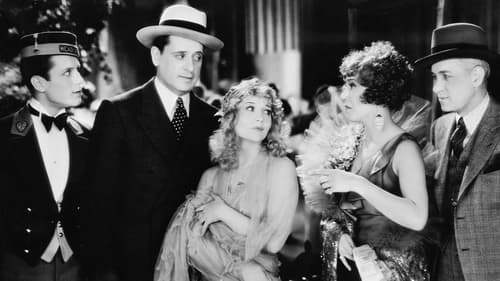
Ethel
With unpaid actors and staff, the stage show Phantom Sweetheart seems doomed. To complicate matters, the box office takings have been robbed and the leading lady refuses to appear. Can the show be saved?
